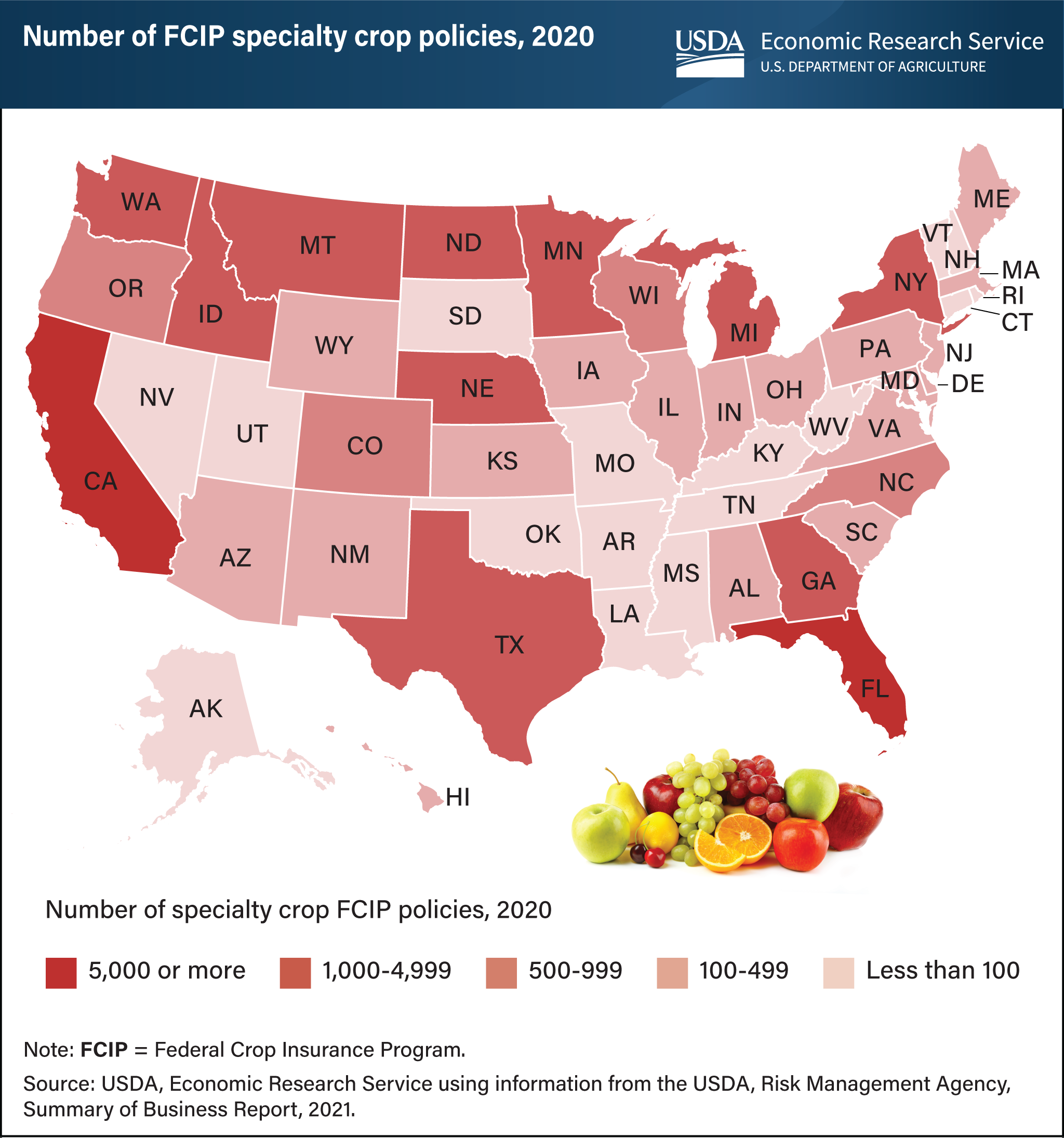California leads States in the purchase of Federal Crop Insurance Program policies for specialty crops
- by Sharon Raszap Skorbiansky
- 11/7/2022

The USDA offers various risk management products to specialty crop farmers through the Federal Crop Insurance Program (FCIP). FCIP policies can mitigate risks by providing payments if insured crops experience losses caused by naturally occurring events (such as weather-related conditions) and market conditions. Specialty crops are a commodity group which includes fresh or dried fruits; tree nuts; vegetables; pulse crops such as dry beans, peas, and lentils; and horticulture nursery crops. California led the country in FCIP policies for specialty crops in 2020 (19,433), followed by Florida (5,060), Washington (4,233), North Dakota (3,860), and Minnesota (2,526). These States also produce the most fruits and vegetables (California, Florida, and Washington) and specialty field crops (North Dakota and Minnesota). California’s policies reflect the variety of specialty crops produced in the State, including almonds, grapes, oranges, walnuts, and raisins. Most North Dakota policies cover field crops—dry beans and dry peas. In 2020, specialty crops accounted for 25 percent of the value of U.S. crop production. This chart appears in the USDA, Economic Research Service bulletin Specialty Crop Participation in Federal Risk Management Programs, published in September 2022.

